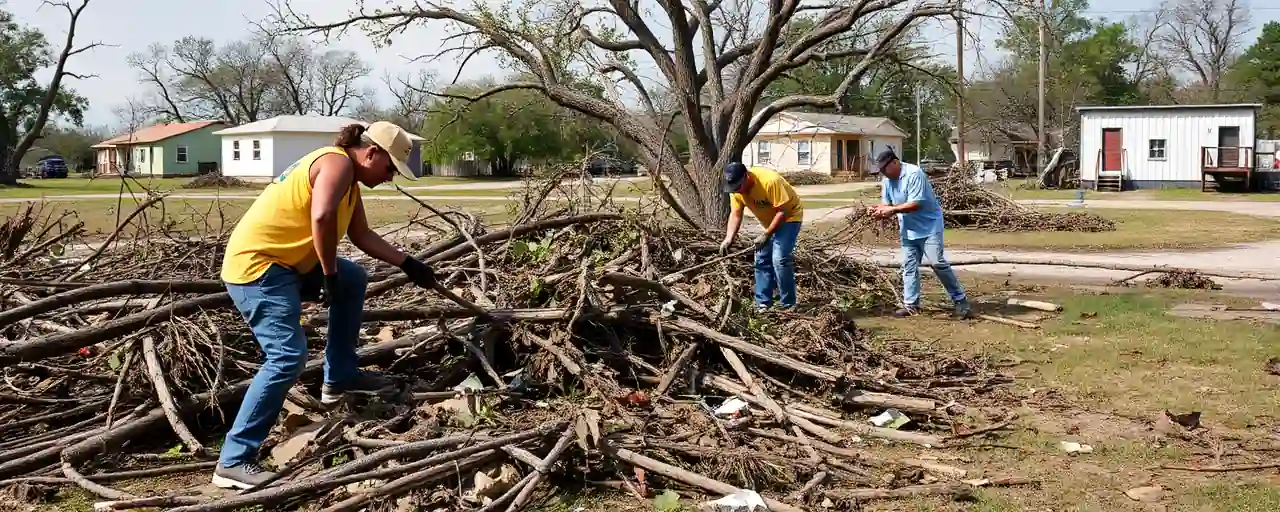A Lone Star Resilience Under Siege
North Texas took a brutal hit from severe storms this past weekend, leaving homes battered and small businesses teetering on the edge. Governor Greg Abbott isn’t waiting for Washington to swoop in with a cape. He’s already directed the Texas Division of Emergency Management to team up with the U.S. Small Business Administration for damage assessments. This isn’t just about paperwork; it’s about real people, real livelihoods, and a state that knows how to take care of its own. The move signals a clear truth: Texas doesn’t sit on its hands when disaster strikes.
Abbott’s call to action cuts through the noise of federal inertia. While the storms left a trail of destruction, they also exposed the grit of Texans who refuse to let nature dictate their future. The governor’s push for low-interest SBA loans isn’t a handout; it’s a lifeline to rebuild what’s been lost. Contrast that with the endless debates in D.C. over who qualifies for what. Texas is proving that decisive leadership at the state level gets results, not excuses.
State Muscle Outpaces Federal Fumbles
Let’s talk facts. Pre-emptive deployment of emergency resources, like the Texas Highway Patrol and rescue teams Abbott activated last week, slashes response times and saves lives. Studies back this up; real-time traffic control tech can cut emergency delays by 30% in cities. This isn’t theory; it’s Texas in action. Compare that to FEMA’s labyrinth of eligibility rules, citizenship checks, and identity hoops. When a small business owner’s shop is underwater, he doesn’t need a lecture on bureaucracy; he needs help now.
History tells the same story. Look at Hurricane Katrina in 2005. States that moved fast with their own resources didn’t drown in red tape. Texas is doing it again, using self-reported damage data through tools like iSTAT to pinpoint needs fast. Critics might whine about accuracy, but speed matters more than perfection when roofs are caving in. The feds could learn a thing or two from Austin’s playbook instead of clutching their rulebooks like a security blanket.
Small Businesses Need a Fighter, Not a Form
Small businesses are the backbone of Texas, and they’re bleeding. In 2022, extreme weather cost U.S. businesses $165 billion, with 40% of small outfits never reopening after a big hit. Rising insurance premiums? They’re choking what’s left. Abbott’s push for SBA loans isn’t charity; it’s a battle cry for the little guy against a system that too often favors corporate giants. The STRONG Act, floating around Congress, gets it right by arming businesses with preparedness tools, but Texas isn’t waiting for lawmakers to wake up.
Some argue federal aid just breeds dependency. Nonsense. Texans aren’t looking for a nanny state; they’re demanding a fair shot to rebuild. FEMA’s tweaks to assistance programs sound nice, simultaneous applications and all, but they’re still a maze of conditions. Underinsured? Tough luck unless you fit the mold. Texas sidesteps that mess by pairing state grit with targeted federal support, proving local know-how trumps centralized control every time.
The Texas Way Wins
Abbott’s strategy is a masterclass in leadership. By rallying state agencies and leaning on self-reported data, Texas is mapping out the damage and securing aid without begging. This isn’t new; states have been the real MVPs since the Mississippi Flood of 1927 showed pre-positioned resources beat reactive scrambling. Today’s tech, like AI-driven satellite analysis, only sharpens the edge. Texas is out front, not trailing behind some federal desk jockey’s approval stamp.
The bottom line? North Texas needs help, and Governor Abbott’s delivering it with a one-two punch of state action and federal leverage. This isn’t about handouts or coddling; it’s about empowering communities to stand tall again. Washington might dither, but Texas doesn’t. That’s why these assessments matter, and that’s why they’ll work. The Lone Star State isn’t just recovering; it’s roaring back.
